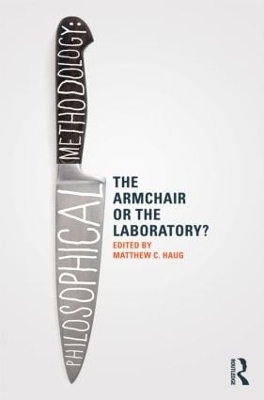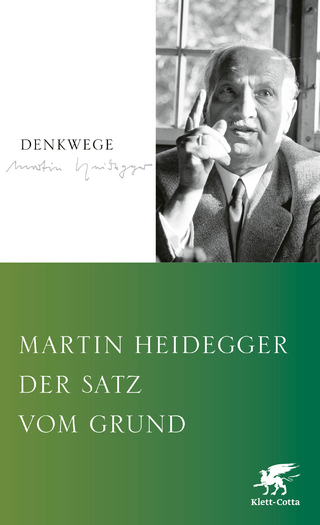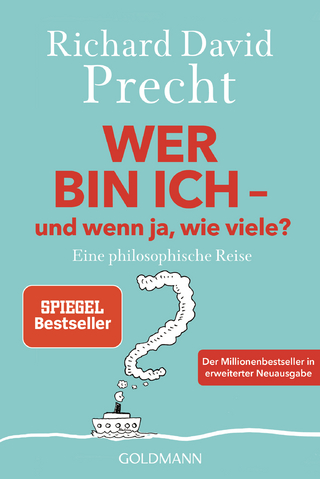
Philosophical Methodology: The Armchair or the Laboratory?
Routledge (Verlag)
978-0-415-53132-0 (ISBN)
What methodology should philosophers follow? Should they rely on methods that can be conducted from the armchair? Or should they leave the armchair and turn to the methods of the natural sciences, such as experiments in the laboratory? Or is this opposition itself a false one? Arguments about philosophical methodology are raging in the wake of a number of often conflicting currents, such as the growth of experimental philosophy, the resurgence of interest in metaphysical questions, and the use of formal methods.
This outstanding collection of specially-commissioned chapters by leading international philosophers discusses these questions and many more. It provides a comprehensive survey of philosophical methodology in the most important philosophical subjects: metaphysics, epistemology, philosophy of language, philosophy of mind, phenomenology, philosophy of science, ethics, and aesthetics.
A key feature of the collection is that philosophers discuss and evaluate contrasting approaches in each subject, offering a superb overview of the variety of methodological approaches - both naturalistic and non-naturalistic - in each of these areas. They examine important topics at the heart of methodological argument, including the role of intuitions and conceptual analysis, thought experiments, introspection, and the place that results from the natural sciences should have in philosophical theorizing.
The collection begins with a fascinating exchange about philosophical naturalism between Timothy Williamson and Alexander Rosenberg, and also includes contributions from the following philosophers: Lynne Rudder Baker, Matt Bedke, Greg Currie, Michael Devitt, Matthew C. Haug, Jenann Ismael, Hilary Kornblith, Neil Levy, E.J. Lowe, Kirk Ludwig, Marie McGinn, David Papineau, Matthew Ratcliffe, Georges Rey, Jeffrey W. Roland, Barry C. Smith, Amie L. Thomasson, Valerie Tiberius, Jessica Wilson, and David W. Smith.
Matthew Haug is Assistant Professor of Philosophy at the College of William and Mary, USA.
1. Introduction: Debates about Methods: From Linguistic Philosophy to Philosophical Naturalism Matthew C. Haug Part 1: Naturalism: Varieties and Viability 2. What is Naturalism? Timothy Williamson 3. Why I Am a Naturalist Alex Rosenberg 4. The Unclarity of Naturalism Timothy Williamson 5. Can Naturalism Save the Humanities? Alex Rosenberg 6. On Naturalism in the Quinean Tradition Jeffrey W. Roland 7. Liberal Naturalism: Wittgenstein and McDowell Marie McGinn 8. Naturalism on the Sydney Plan Jenann Ismael Part 2: Methods in Metaphysics, and Epistemology 9. The Easy Approach to Ontology: A Defense Amie L. Thomasson 10. Metaphysical Knowledge E.J. Lowe 11. Three Dogmas of Metaphysical Methodology Jessica Wilson 12. The Poverty of Conceptual Analysis David Papineau 13. Is There Room For Armchair Theorizing in Epistemology? Hilary Kornblith 14. Methods in Analytic Epistemology Kirk Ludwig Part 3: Methods in Philosophy of Language, and Philosophy of Mind 15. The Possibility of a Naturalistic Cartesianism Regarding Intuitions and Introspection Georges Rey 16. Linguistic Intuitions Are Not ‘The Voice of Competence’ Michael Devitt 17. Philosophical and Empirical Approaches to Language Barry C. Smith 18. The First-Person Perspective and Its Relation to Natural Science Lynne Rudder Baker 19. Phenomenological Methods in Philosophy of Mind David W. Smith 20. Some Husserlian Reflections on the Contents of Experience Matthew Ratcliffe Part 4: Methods in Ethics and Aesthetics 21. Intuitions and Experimental Philosophy - Comfortable Bedfellows Neil Levy 22. Beyond The Experience Machine: How to Build a Theory of Well-being Valerie Tiberius 23. Ethics Makes Strange Bedfellows: Intuitions and Quasi-Realism Matthew Bedke 24. On Getting Out of the Arm Chair To Do Aesthetics Gregory Currie. Index
| Verlagsort | London |
|---|---|
| Sprache | englisch |
| Maße | 156 x 234 mm |
| Gewicht | 703 g |
| Themenwelt | Geisteswissenschaften ► Geschichte |
| Geisteswissenschaften ► Philosophie ► Metaphysik / Ontologie | |
| Geisteswissenschaften ► Philosophie ► Sprachphilosophie | |
| ISBN-10 | 0-415-53132-2 / 0415531322 |
| ISBN-13 | 978-0-415-53132-0 / 9780415531320 |
| Zustand | Neuware |
| Haben Sie eine Frage zum Produkt? |
aus dem Bereich


